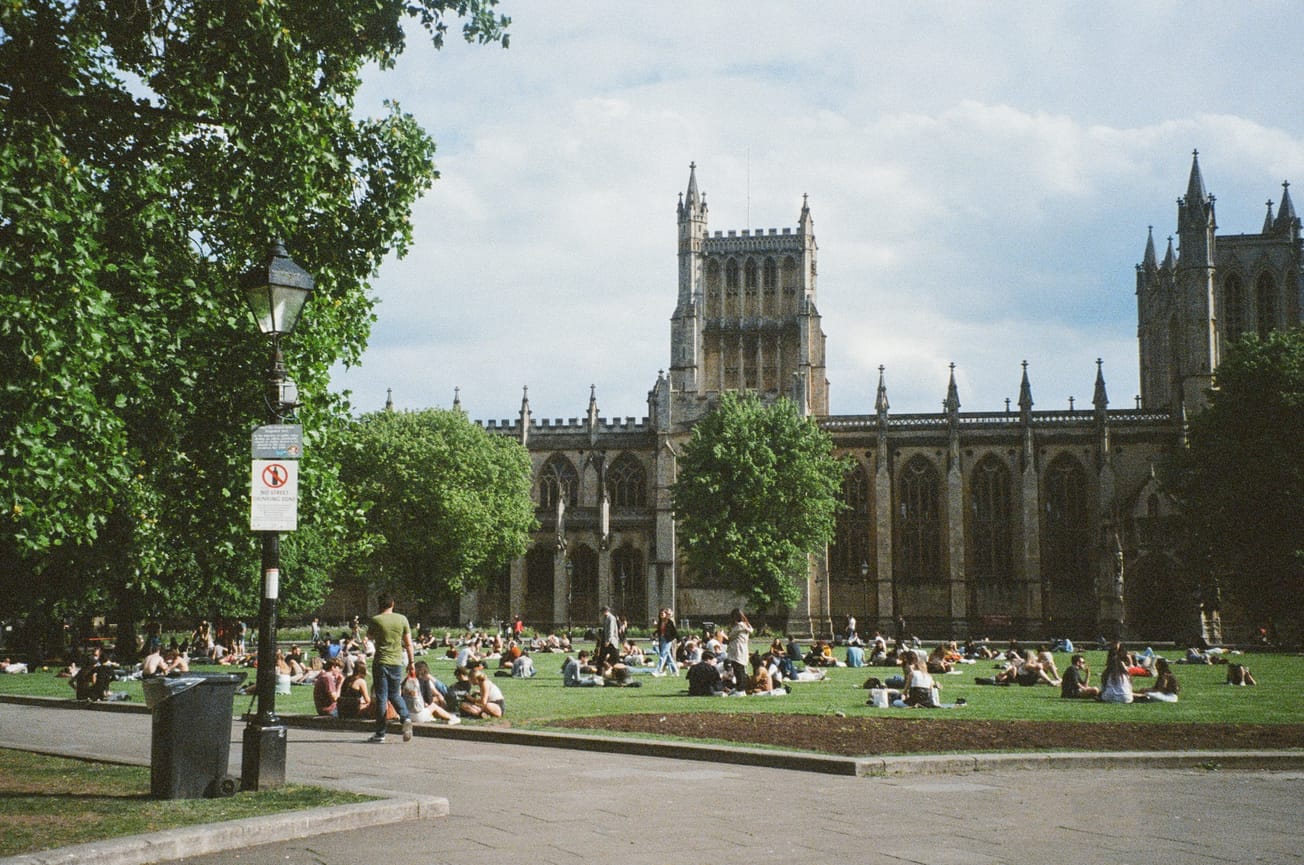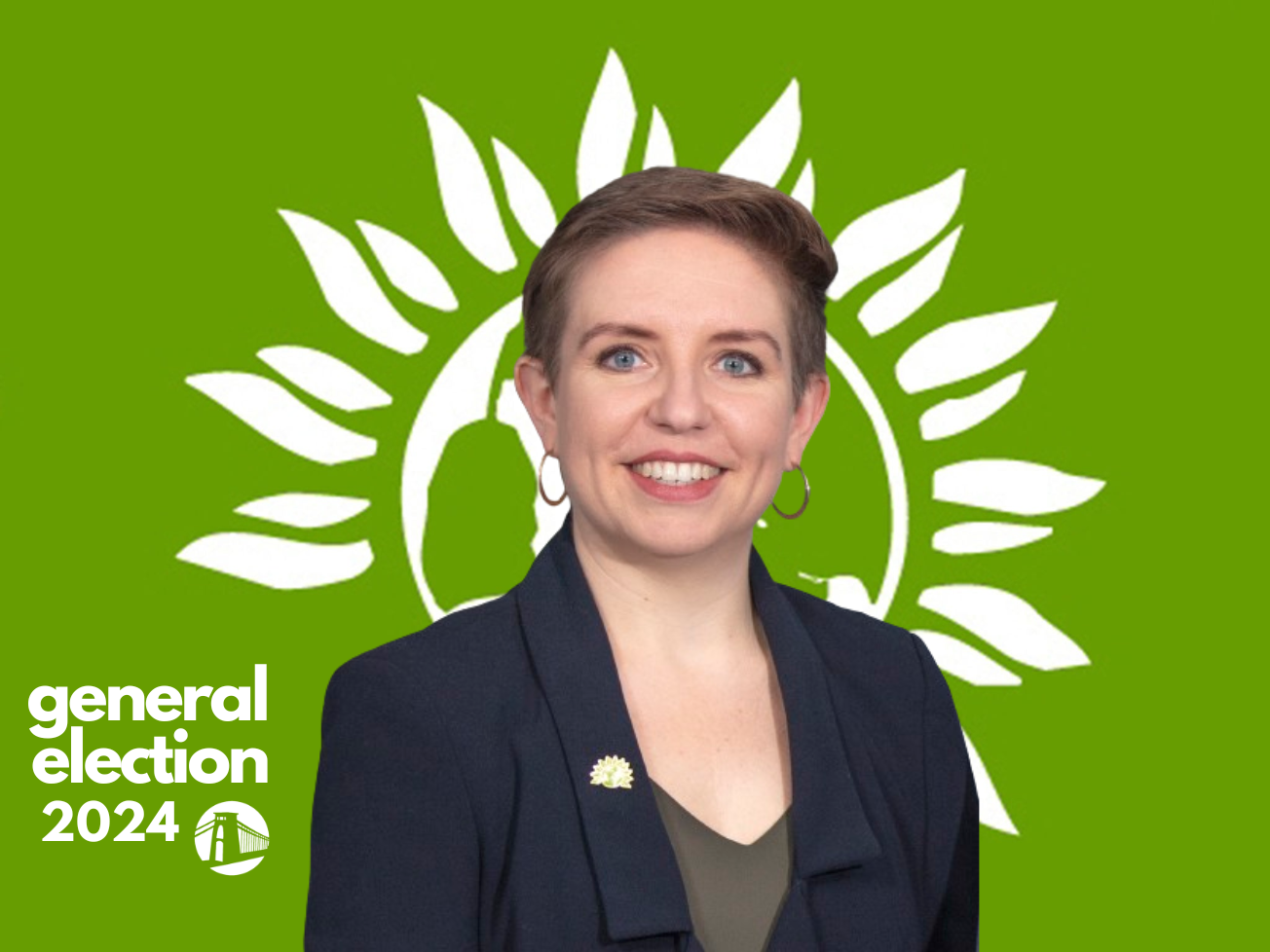By Imogen Rance, Proofreader
Bristol has a long history of lesbian communities and spaces, yet in 2024 you’d have difficulty locating any dedicated lesbian venues in the UK, let alone in Bristol itself.
Faced with dwindling opportunities to meet other lesbians in person, how do students experience and explore their sexuality in Bristol, do they feel the city still has a lesbian scene, and is such a concept still important to them?
Outstories, Bristol’s LGBTQ+ history group, has recorded the existence of various lesbian pubs and clubs throughout the city’s history. Chantelle’s on Whiteladies Road operated as a small lesbian club from around 1977 to 1982 and The Scarlet Coat was a lesbian club on Union Street, open between 1984 and 1990.
A weekly women’s only disco night is also recorded at Roxy’s, an otherwise straight club on Fairfax Street which ran in the early 1980s. Regarding this night, Outstories writes ‘Although the majority who went were lesbians, straight women went too as it was somewhere they could have a dance without being pestered.'
The lesbian scene in Bristol has certainly changed. While other LGBTQ+ bars and nightclubs such as OMG and Queenshilling exist today, no lesbian pubs or clubs remain in the city. There is an LGBTQ+ society at the University of Bristol, but no specific society for lesbian students.
To get a sense of individual student perspectives, Epigram spoke to Saskia, a lesbian and third-year English and History student, who described her expectations of the lesbian scene at Bristol prior to arriving at university:
‘I think I expected there to be more of a community at the university, or at least that I would find one straight away. I came from having lots of queer and lesbian friends at home, and it was a bit of a culture shock.’
She recalls ‘finding it difficult in the beginning to feel “part of” the queer community at Bristol because it was one that still very much centred around men. I remember feeling lonely on nights out because my friends would find men to “get with”, meaning I was often stranded in fresher’s week, feeling out of place.
‘I’ve often also struggled with a fear of feeling “predatory” around other women, which held me back in social and night-out settings and probably was part of the reason I avoided clubbing in first year.’
"'It was difficult trying to explore, at times, because I didn’t necessarily feel there were many people like me"'
It’s clear that while there are some spaces and communities open to lesbian students, they do not necessarily provide the environment or support students are seeking. Phoebe, a lesbian and third year Film and Television student, had a similar experience in her first few weeks at university. Speaking to Epigram, she said:
‘It did feel like a lot of social events, especially in fresher’s week, were heavily dominated by the straight “scene”. I had my own personal development to do now that I was finally in a city where I could explore my identity, but I didn’t really have any queer experiences or discussions until I had found other queer people and friends to hang out with.
‘It was difficult trying to explore, at times, because I didn’t necessarily feel there were many people like me.’
Despite the lack of a specific lesbian community, both Phoebe and Saskia have found solidarity in other ways. When asked if her course at the university had contributed to her sense of lesbian identity, Saskia said, ‘I’m very grateful that I do a humanities degree, because queerness is discussed openly within the literature and history I study.
‘I have focused my studies towards queerness anyway, as it’s a lens that has always interested me, so in part it’s been my shaping of my course rather than the course itself that has done this.
‘For example, I chose to write about queerness as monstrosity in Sheridan Le Fanu’s Carmilla, last year, a novel that wasn’t actually on the reading list. […] To be honest, I think it would be hard to avoid queerness on our course, but as a lesbian it’s something that always frames my perspective of life, so of course it affects my academic interests.’
Phoebe concurs: ‘I've met quite a lot of other queer people who are on my course, so it has definitely helped me personally with my identity, finally being able to interact with other queer people and lesbians within a workspace and a social scene.
'Their events are inspired by the lesbian discos of the 80s and are open to queer women, non-binary and trans people'
‘I felt able to express ideas with my film work from the perspective of a lesbian and felt heard and, more importantly, understood.’
It is worth noting the correlation between evolving concepts around identity and the changing landscape of the lesbian scene. Lesbian dedicated spaces have significantly diminished over the last couple of decades in Bristol and across the country, but recently events catering to lesbians, non-binary people and trans people have made something of a resurgence.
In the summer of 2022, Bristol Butch Bar emerged, offering a hub for the butch community in Bristol. They welcome butch lesbians, non-binary people and trans people and meet on the last Tuesday of every month.
Misscoteque, too, is a lesbian club night established in March 2020 by Bristol alumni Georgia Dimore-Miles and Amaia Emmerson during their time as students. Their events are inspired by the lesbian discos of the 80s and are open to queer women, non-binary and trans people. After a quiet period in the latter part of 2023, Misscoteque’s return this year, recently announced on Instagram, is highly anticipated.
These events represent the foundations of a new lesbian scene that has evolved to accommodate contemporary ideas around sexuality and gender expression, regenerating a community in need of solidarity and safe spaces.
On finding a sense of community, Saskia notes, ‘I have found a community that is not necessarily fully lesbian but is definitely queer. It’s taken time, and mostly I’ve found queer friends through TWSS (That’s What She Said, UoB’s feminist magazine), and film society, rather than any of the LGBT socials.
‘I went to a couple in first year and didn’t feel like I fitted in […] [though] I’m at a place with my sexuality where I don’t have to rely as much on having lesbian friends to feel comfortable in my lesbianism. The lesbian scene has also grown in my time at Bristol, especially with Misscoteque.’
Saskia notes she needs a lot of ‘queer energy’ to feel comfortable in her friendships, a perspective Phoebe agrees with: ‘I do find it important to be around other queer people. They don’t necessarily have to identify as lesbians, but being with other queer people has been crucial for me in expressing my feelings about my own identity and my relationship.
‘Pressure to make my degree count’: The first-generation student experience at Bristol
‘We will fight for what we believe in’ | Does student activism produce real change?
‘It does often feel, although accepted, that straight people don’t always understand my relationship and my identity.’
Community is still important to lesbian students at Bristol today. However, changing ideas about identity, sexuality and gender expression have necessitated the creation of more inclusive spaces. Bristol, it seems, is slowly rebuilding the lesbian scene that its students need.
Featured Image: Unsplash / Elena Jiang
Where are you finding a queer community in Bristol?








